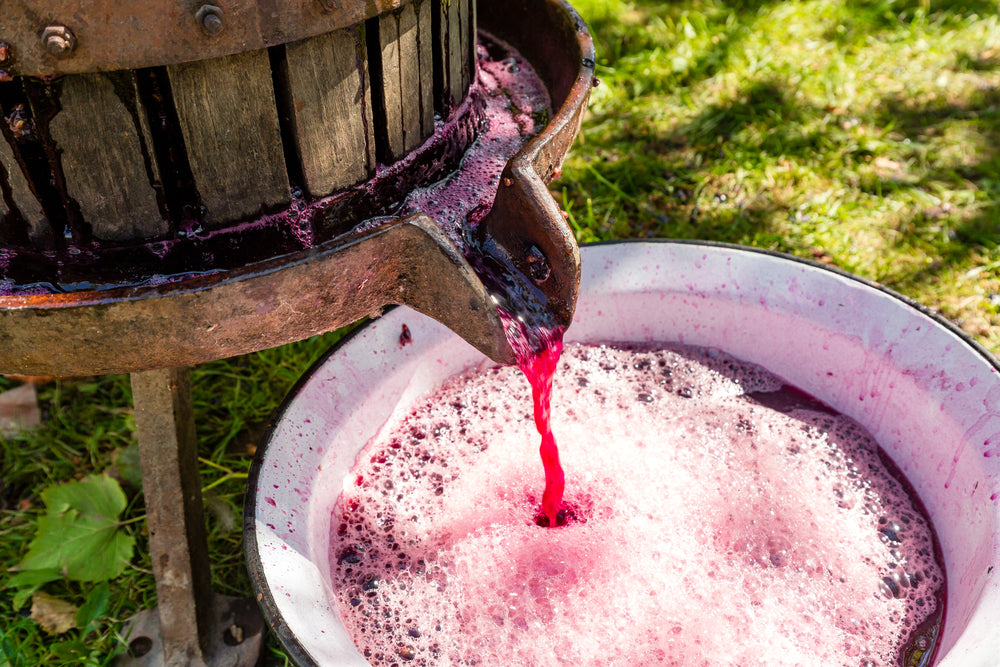
What Is Natural Wine?
Everyone is talking about natural wine these days—and for good reason. It’s marketed as a healthier and more environmentally conscious alternative to regular wine. But are those claims true?
Let’s discuss natural wine, its definition, production, and availability. Natural wine is interesting, to say the least. When showing its best, it looks like any other wine; but sometimes, it shows its funky side.
How natural is natural wine? And is natural always better? Before we get started, explore our site for more vinous content, and expand your stemware collection with handcrafted crystal pieces. When it comes to wine, the right glass makes all the difference.
The Origins of Natural Wine
Natural wine is a loose term used for wine made with a non-interventionist approach in both the vineyard and the cellar. This means using no chemical fertilizers in the fields or additives in the winery. The result is supposed to be fermented grape juice, and nothing else.
Natural wine is nothing new. For thousands of years, all wine was natural. In the last few hundred years, we turned winemaking into an industrial process, which poses a problem. Wine has never been truly natural. Additives like sulfur dioxide (aka sulfites or SO2) have been used since the times of the Ancient Romans who lived more than two thousand years ago.
More often than not, the difference between natural and organic wine is that organic wine contains sulfite. So how is natural wine made?
How to Make Natural Wine
Natural wine should look, smell, and taste like any other wine. After all, the process behind it isn’t all that different from modern wine-making practices. The grapes are picked, crushed, macerated, and fermented. The resulting wine may or may not be clarified and filtered, and the wine can spend some time aging in barrels before being bottled.
Natural wine producers can do some of these things to their wines or none of them. Natural wine is fluid and open to interpretation. However, the most crucial question winemakers must answer when making natural wine is whether they use sulfur dioxide and, if so, how much.
Note: Sulfur dioxide is a natural compound that acts as an antioxidant and antibacterial agent in wine, extending its shelf life and protecting it from oxidation.
Is Natural Wine Worth the Hype?
Some people believe natural wine is better for you since it doesn’t contain additives. However, this is only somewhat true. Although wine made with organic fruit is undoubtedly safer to consume than wine made with fruit sprayed with weed killers and pesticides, not all additives in wine are harmful. Sulfur dioxide is natural, and you find it in all types of foods. In fact, more SO2 is found in french fries than in wine.
On the other hand, wine that’s bottled without SO2 has a short shelf life. It oxidizes quicker and is more susceptible to fungal and bacterial contamination. This is why natural wine sometimes smells funky.
The bottom line? Natural wine should look and taste like regular wine and be healthier, provided it’s made with no artificial additives. However, most natural wine on the market sacrifices quality for purity. Remember that no wine, not even natural wine, should taste or smell bad. The line must be drawn somewhere.
Where to Buy Natural Wine
Most wine suppliers offer a wide selection of natural wine. If the producer has a good reputation, its natural wine will be as good as any other. However, natural wine can be more expensive. Making wine the old-fashioned way is more complicated than you think.
If you want to drink healthier wine that’s also better for the environment, look past natural wine and buy sustainable wine. Sustainable wine is made with organic fruit, involves minimal intervention, and considers factors like water usage, energy savings, waste management, packaging, and even human rights in the production process.
To enjoy organic, natural, and sustainable wine at its best, store it in a cool and dim-lit place, serve it at the right temperature, and pour it into artisan stemware. Grassl wine glasses are among the best wine glass options to enjoy fine wine, whether or not it contains sulfites.